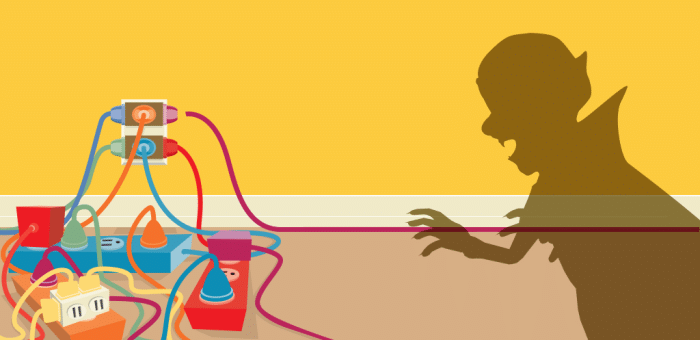Some bills are predictable — your mortgage or rent, car payment, mobile phone, subscription services. Every month, you pay the same amount. Others, like your electric bill, can be a stressful mystery. It’s already one of the most expensive utility bills for most US residents.
When there’s an unexpected spike in your electric bill, it can be a bit of a shock to the system. What causes an increase in your electric bill, though? There are a few culprits, ranging from your electric company to various appliances in your home. Getting to the bottom of your electric bill spike can help you take the necessary steps to address the issue and improve your energy efficiency.
Common Reasons for an Electric Bill Spike
Sometimes, taking a look at the details in your statement can help you understand what happened to cause your electric bill to spike.
An Electricity Rate Increase
Changing electricity rates can play a significant role in what you pay for your electrical usage. Power companies tend to increase the cost per kilowatt-hour (kWh) when demand is higher, like during Texas’ sweltering summer months.
Depending on your contract, your rate might increase when your contract expires and shifts to a provider-defined rate. It’s kind of like signing up as a new customer for a cable or internet provider. You get a great introductory rate for a set period. Then, when that period ends, the company raises your rate to what they want.
Changes in regulatory rates can also lead to an increase in your electric bill.
Growth in Your Electricity Usage
Any increase in your energy consumption will come with an electric bill spike. For families with school-aged children, these increases in electrical usage typically occur during the summer, when school’s not in session and they’re spending more time at home. Coupled with the seasonal jump in the cost of electricity, spikes in energy bills are common — but no less unsettling — during these times.
Working from home more often has also led to natural rises in electrical usage. Even if you’re only working from home part-time, you’re still likely using more energy now than you were before 2020. This means your energy bills are going to be higher.
Electricity-Drawing Appliances That Increase Your Energy Consumption
Many items in your home rely on electricity — your television, computer, cellphone (chargers), gaming consoles, and small kitchen appliances are just a few examples. Even if you turn these devices off, they continue to draw a small amount of power if you leave them plugged in. You may not be actively using the devices, but you’re still paying for energy being wasted.
Your home also has a few larger appliances that use a lot of electricity. If they aren’t working efficiently, they use even more. The result? Your energy costs start climbing, even if your intentional electrical usage hasn’t.
Air Conditioner
Your air conditioner uses a substantial amount of energy, especially during the summer months. If it’s outdated or isn’t working properly, it will use even more. Even something as simple as a dirty air filter can harm its efficiency, making your system work harder to draw in air.
Other reasons your air conditioner might be using more energy than necessary include:
- Duct leaks. A leak in an air ductallows cooled air to escape your system before it reaches your vents.
- Low refrigerant. Without enough refrigerant, your system can’t remove heat from the air efficiently.
- Failing components. Any broken or failing parts on your air conditioner can reduce its efficiency.
If your home lacks proper insulation, your air conditioner will generally have to run more often, too, even if it’s a newer, energy-efficient model.
Water Heater
Your water heater runs continuously to keep the water in the tank warm. The higher you set its temperature, the more power it will draw to do its job and the more you’ll pay for electricity.
There are a few other water heater issues that could lead to an electric bill spike, such as:
- Over time, sediment in your water could settle at the bottom of your water heater, reducing the system’s efficiency.
- A system that’s too large means you’re paying to heat water you don’t need. One that’s too small has to work harder to keep up with demand.
- Water heaters last an average of 10 to 15 years. If your system is around that age, its efficiency may be starting to wane.
Refrigerator
Like the other larger appliances in your home, your refrigerator uses a lot of energy, especially if it’s older. However, even energy-efficient models can use more power in specific situations, such as:
- Keeping the door open. Standing in front of the refrigerator with the door open allows the cool air to escape, which means the unit will have to pull more electricity to reduce its temperature again.
- Improper temperature setting. Setting the temperature too high or low can force your refrigerator to use more power.
- Dirty coils. Dirt, dust, and pet hair buildup on your refrigerator’s condenser coils can keep your unit from functioning properly.
Electric Ovens and Stoves
Cooking at home is supposed to save you money on food, but your electric oven and stove could be driving up your energy costs. The time it takes to cook or bake your food, the number of burners you use, the temperature, and how often you cook all influence the amount of energy these appliances will use.
Can You Be Energy Efficient While Using These Appliances?
Large appliances may draw a lot of energy, but it’s still possible to be energy efficient while using them. Here are a few suggestions that can help:
- Raise the temperature of your air conditioner by a few degrees. For instance, instead of setting your thermostat to 70°F, set it to 72°F or 74°F. Consider closing your curtains during the hottest hours of the day during the summer months and turning on ceiling fans to circulate the cool air.
- Lower your water heater’s temperature by a few degrees. Most manufacturers recommend 140°F, but you may be able to bring it down to 130°F or even 120°F.
- Knowing what you want to eat before you open the refrigerator door can reduce the amount of time you keep it open. Keeping your fridge full — but not overstuffed — and letting hot food cool before storing it can also help to reduce its workload.
- When you’re cooking, match the size of your pot or pan to your burner. Use a lid or kettle to help water boil faster. Avoid opening your oven door frequently to check your food, and don’t leave the oven on longer than you need to.
How to Increase Energy Efficiency in Your Home
There are several steps you can take to increase the energy efficiency of your home, including investing in newer models of large appliances and having your air conditioner and water heater inspected by professionals periodically. You can also make small changes around your home, such as using more energy-efficient lightbulbs, unplugging appliances you aren’t using, and limiting screen time.
You can also lower your monthly energy bill by switching energy providers — and Power Wizard can help. With a few essential details from you, we can filter through hundreds of plans in a matter of seconds and show you a list of the best ones for you.
Are you ready to reduce your electric bills? Visit Power Wizard to start shopping for the best energy plans today!








